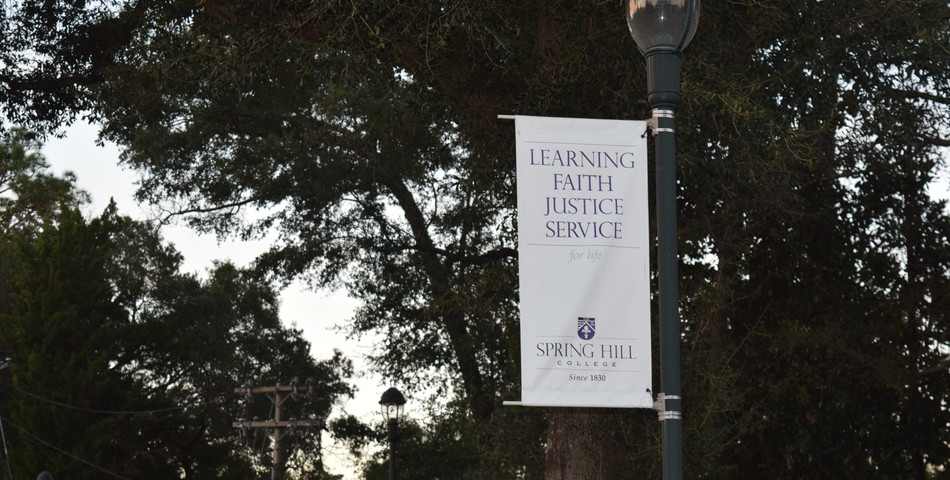Recent budget cuts for Spring Hill College have left the school in good financial standing for the next few years, SHC President Christopher Puto said.
Budget adjustments were a part of SHC’s accreditation review from the Southern Association of Colleges and Schools Commission on Colleges (SACSCOC). According to Puto, the budget was revised in November 2017 to show that the college’s expenses from Nov. 1 to June 30 would be reduced so the college could have a balanced budget.
According to Puto, the budget cuts included six staff layoffs, and cuts in other expense categories that did not affect students. He said that the college does its best to avoid cutting expenses that would directly affect students. “Everything we’re doing is intended to minimize the impact on the students’ experience at Spring Hill,” said Puto. “Our goal is to have every student feel that this is the best possible education experience you could get anywhere.”
SHC had been under financial probation for two years up until December 2017 when the SACSCOC board lifted the probation. Now that the college is no longer on financial probation, SHC’s SACS accreditation is reaffirmed through 2026. “I’m not sure that students realized how big of a positive outcome that is,” said Puto, “but it was big.”
SACS accreditation affects financial aid and the value of the college degrees received from SHC. Accreditation certifies that the education offered at SHC matches the highest quality of education offered by other schools. For financial aid, a student who needs a government loan must be attending an accredited college. Without accreditation, a student would not be able to receive government loans to attend SHC.
Puto explained that the college has initiated a new budget planning process to help ensure a steady budget in the future. This process will be a zero-based budgeting process, which means that academic departments and operating units will set goals for the year and determine how much it will cost to accomplish those goals. The revenue the college receives is determined by multiplying the number of students by the average cost of tuition. The college matches the revenue coming in versus the expenses going out. If the numbers don’t match, the college will either determine whether something can be done to increase revenue, or find areas where expenses can be reduced. This new budget process will begin in July.
Puto said that even though there was some worry before with the financial probation, students no longer have to worry now that the probation has been removed. He believes that in 2026, when it is time for accreditation review, SHC will be prepared to show SACSCOC the college’s progress.
